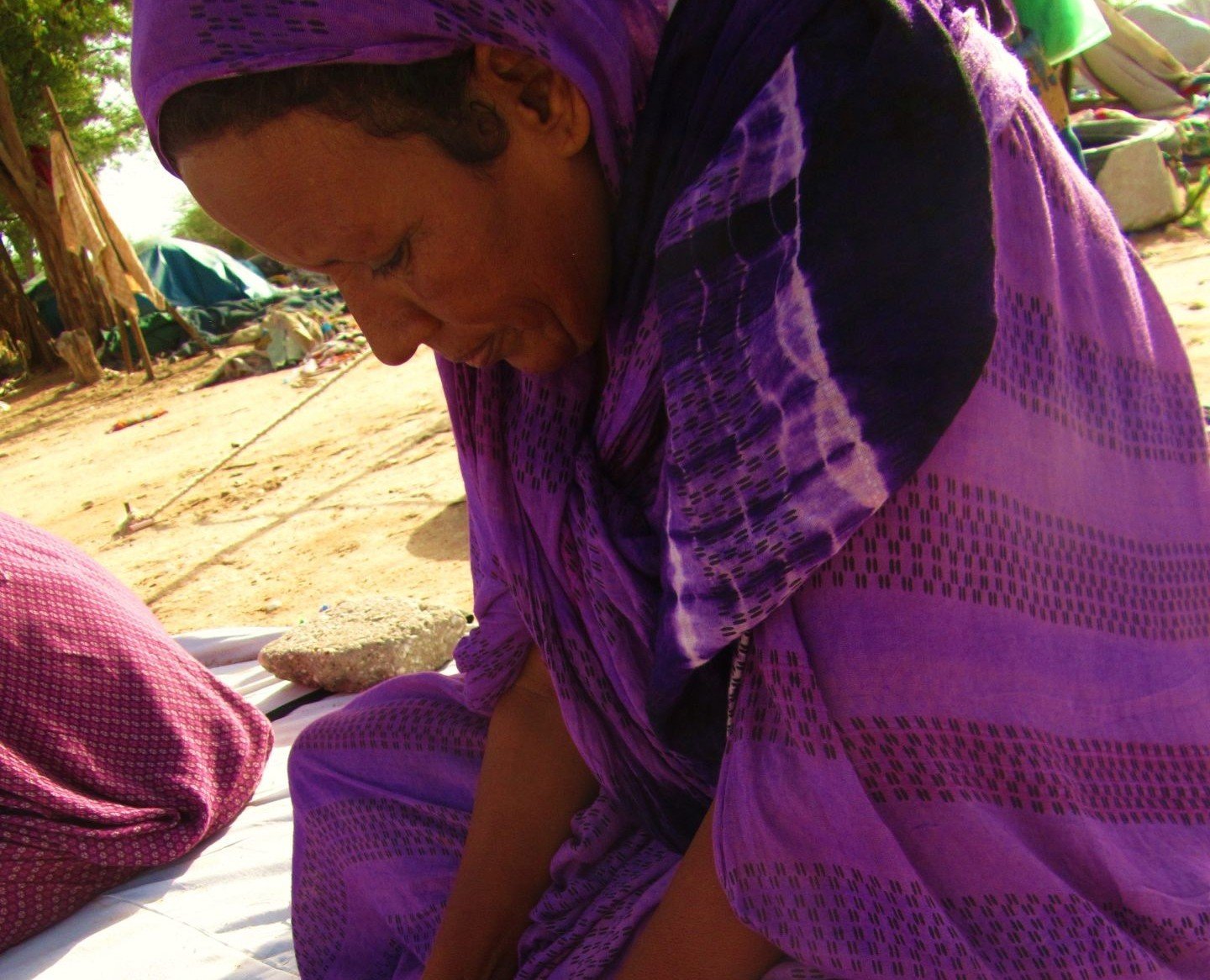
Gender equality for Haratines in Mauritania
Duration: 30 September 2011 – 30 June 2015
Country: Mauritania
Communities: Haratine women
What was this programme about?
We worked with women of the Haratine community in Mauritania to empower them to bring about lasting change for themselves, their families and communities. Our programme aimed to integrate a gender equality approach and establish strong leadership and long-term organizational sustainability within the work of Haratine civil society organisations (CSOs). To achieve this, we had two specific aims: to increase the visibility of Haratine women within their community, within Mauritanian society and internationally, and to ensure that effective initiatives are implemented to address the issues they face. We aimed to help establish CSOs representing Haratine women and to strengthen their capacity to better advocate for the implementation of human rights instruments by the Mauritanian government. These steps would lay the foundation for more effective participation of Haratine women and Haratine-focused CSOs in local, regional and national decision-making processes.
Why did we deliver this programme?
Mauritania has the most entrenched system of slavery in the world. The Mauritanian authorities officially claim that slavery no longer exists because it was abolished and criminalised by the 2007 Anti-Slavery Law which prohibits slavery and related discrimination. However, there is clear evidence that this law is not respected or implemented in practice. Despite the official abolition of slavery in 1981, it is estimated that 18 per cent of Mauritania’s population live in slavery today.
Mauritania’s Maure population consists of the light-skinned Beydans and Black Haratines. Beydans, who form the country’s elite and are dominant in the country’s government, military, businesses and resource ownership, historically raided and enslaved Haratines, who continue to suffer from persistent slavery practices. Due to this historic membership of the ‘slave caste’, they are the most disenfranchised community in the country and suffer discrimination, marginalization and exclusion and are systematically deprived of their respect, dignity, and rights.
Haratine women face double discrimination both as members of the ‘slave caste’ and because they are women. They face the threats of forced or early marriage, lack of control of fertility, sexual abuse or rape, and trafficking into sexual exploitation which increase the dangers of severe maternal health problems and HIV/AIDS. Who they marry and at what age is decided by their enslaver. Their children become the property of their enslaver and can be rented out, loaned or given as gifts in marriage. Freed Haratine women can generally only find work as domestic servants or sex workers. Their exclusion from decision-making processes and development dialogues directly impacts their well-being.
What did we do?
- Carried out a baseline study on the situation of Haratine women.
- Organized workshops for Haratine-focused CSOs and Haratine women on capacity-building and experience and knowledge sharing.
- Provided organizational capacity-building grants to Haratine-focused CSOs.
- Established an informal Haratine women’s network.
- Developed information-sharing mechanisms to inform the broader community of the developments about gender equality and women’s rights.
- Provided community awareness training on the issue of gender discrimination to members of the Haratine community including women and men.
- Published and disseminated a report on the issue of intersectional discrimination affecting Haratine women in Mauritania.
- Produced and launched a documentary film on the issue of intersectional discrimination affecting Haratine women in Mauritania.
- Undertook advocacy activities about the situation of Haratine women in Mauritania at the local, national and international levels.
Who were our partners?
Association des Femmes Chefs de Famille (AFCF) is a non-governmental organization founded in 19991 which supports women in remote regions of Mauritania, including Haratine women. They also work on the prevention of violations against women and girls.
SOS-Esclaves (SOS) is the longest-established anti-slavery organization in Mauritania created in 1995 by leading figures of the earlier El Hor movement. It has over 2,000 grassroots members and ‘focal points’ in each region and most towns of Mauritania as well as regional offices in Atar, Nema and Bassiknou where slavery is particularly prevalent.
Who funded this programme?
This programme was supported by the European Union.
Find out more…
- Watch the documentary film Documentaire – Mauritanie: Esclaves et discriminee: l’émancipation des femmes Haratines
- Download the report Still Far From Freedom: The Struggle of Mauritania’s Haratine Women
- Read an interview with Me Elid Mohameden, a lawyer supported by MRG to represent women and child victims of slavery in Mauritania.
What did the external evaluation say?
The programme played a key role in promoting the rights of this vulnerable community and successfully emphasized feminine leadership. An average of 77 per cent of objectives have been achieved. The trainings and the awareness-raising activities in the Haratine communities have provided many Haratine women with the necessary tools to assert their rights and those of their children. The beneficiaries of the training sessions gained vital knowledge and skills that could be used at both professional and social levels. The evaluation notes that the ‘lack of engagement on behalf of the Mauritanian government and foreign embassies remains the principal obstacle preventing significant changes to the Haratine community’s situation in the Mauritanian society from happening.’
The evaluators’ recommendations included that work to support the Haratine Community in Mauritania should continue; that MRG should consider focusing on some different geographical areas of the country where needs are very high; to ensure that all members of the community have access to ID documents; to hire a local communications staff member to ensure dissemination and use of the produced materials; and to support the community to gain access to income generating projects due to the extreme poverty undermining other efforts.
—
Photo: A Haratine woman in Mauritania.
This content is the sole responsibility of Minority Rights Group International and can under no circumstances be regarded as reflecting the position of the European Union.
